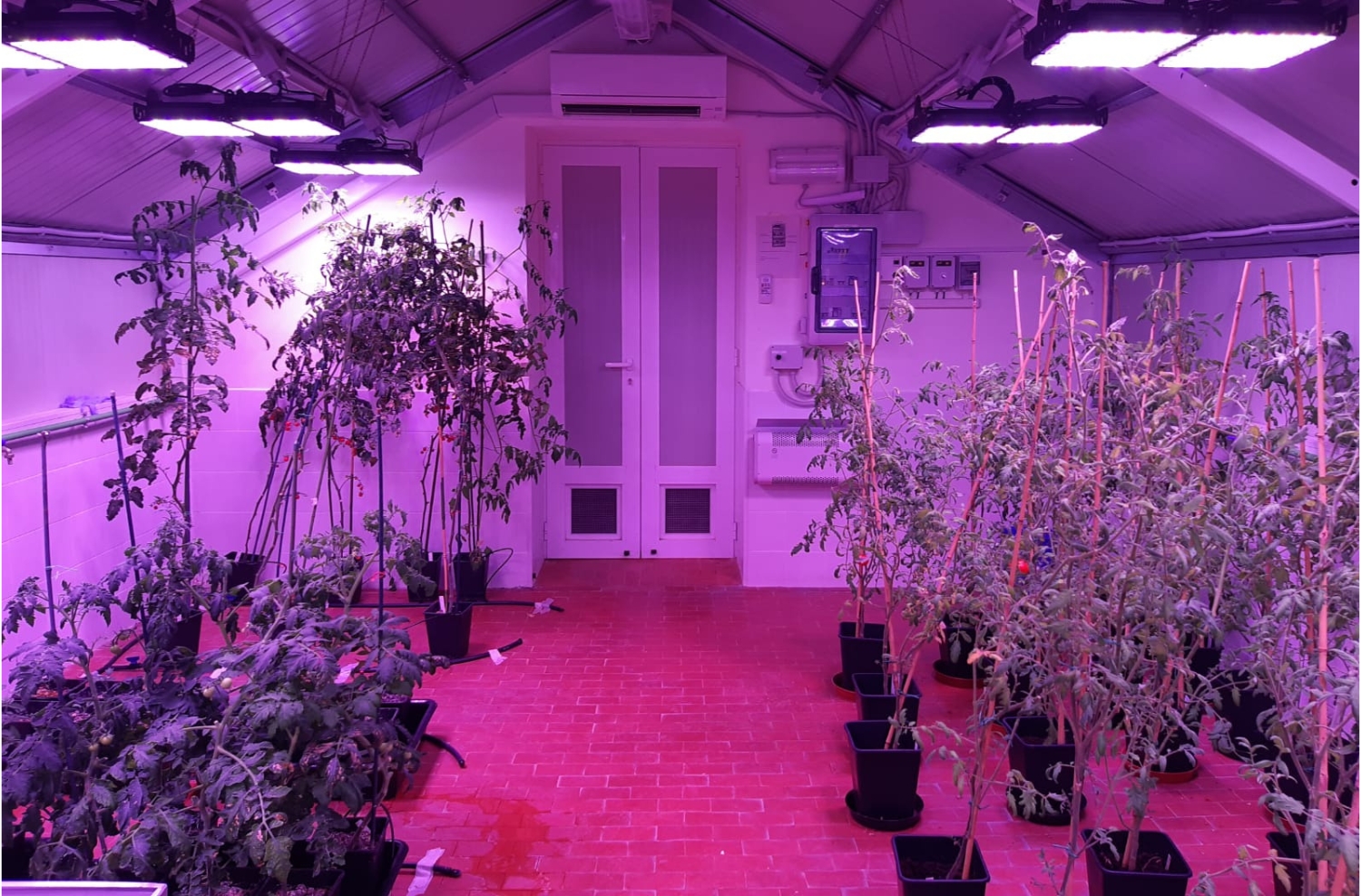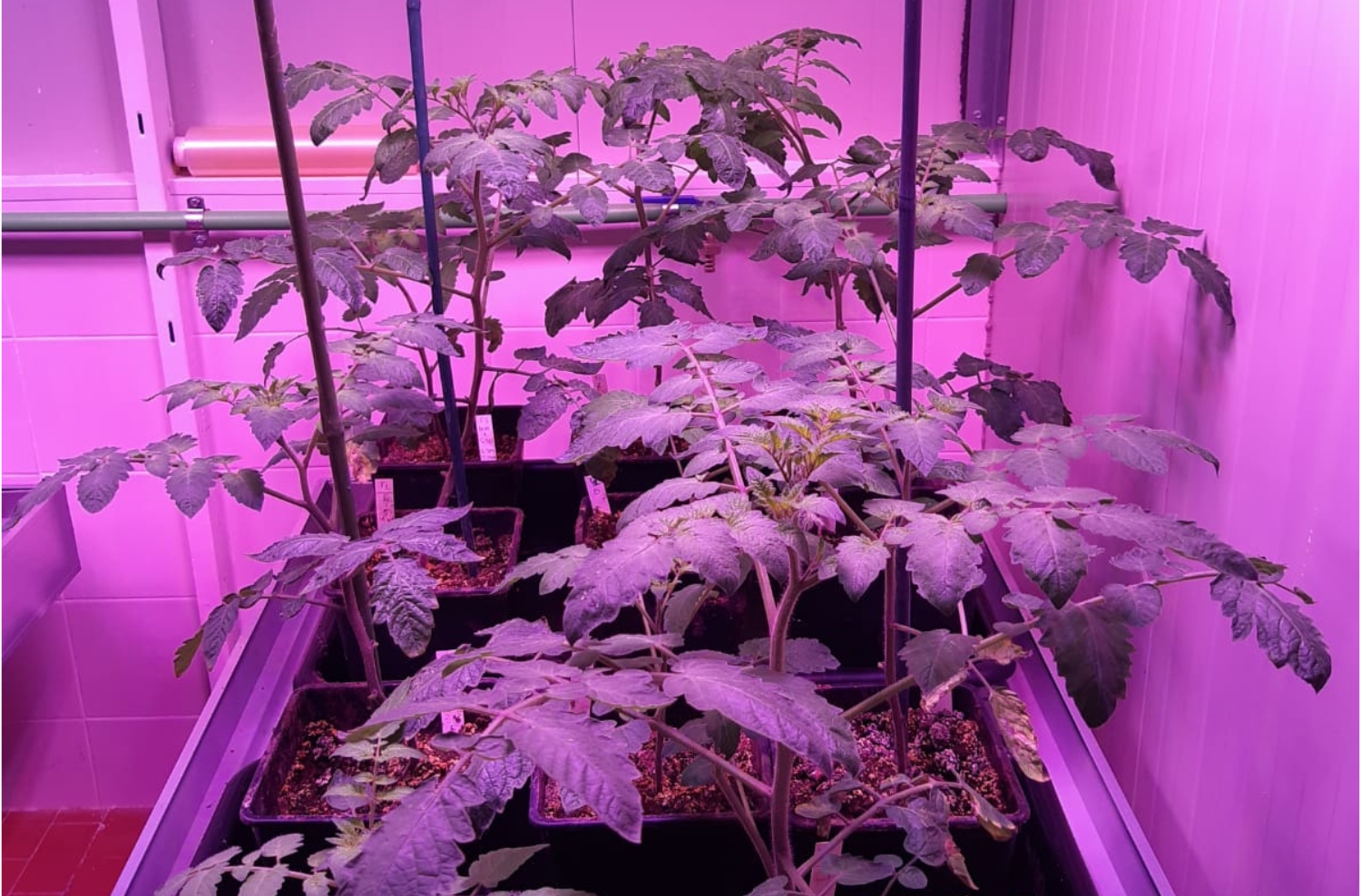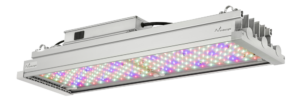ENEA, the Italian National Agency for New Technologies, Energy and Sustainable Economic Development, developed a method to accelerate the tomato breeding cycle as part of the European project HARNESSTOM. Tomatoes are one of the most widely cultivated crops in the world, essential to the Mediterranean diet and rich in antioxidants like vitamin C, provitamin A, and lycopene. However, their long generation time (65–100 days) limits the number of annual cycles, slowing down innovation in horticulture farming.
By using a controlled growth chamber, ENEA aimed to reduce breeding timelines and speed up varietal selection. This approach supports stable, high-performance indoor cultivation systems that are beneficial for both scientific study of plants and commercial applications.
The project
Tomatoes are grown inside climate-controlled growth chambers, where light intensity (300–600 µE), photoperiod, temperature, and humidity are finely regulated. The use of Ambralight grow light for indoor plants allows year-round production, increasing the number of generational cycles compared to traditional greenhouse or field cultivation. The precise control of environmental parameters leads to faster and more uniform development—ideal for breeding programs. The artificial lighting was specifically designed to enhance the effect of light on photosynthesis, enabling intensive crop cycles without seasonal limitations. This solution is particularly valuable in modern horticulture farming where predictability and productivity are key.
Installation description
ENEA installed an indoor cultivation system equipped with MB2451D LED lamps featuring a fixed LED light spectrum and Osram LEDs. These grow light for indoor plants ensure uniform light distribution in both intensity and spectral quality. The light output is constant and calibrated to support vital tomato plant processes, particularly the effect of light on photosynthesis, helping accelerate plant development and increase overall growth robustness. The lighting system is also dimmable to accommodate different phenological stages, making the environment highly controllable and optimized for fast breeding cycles and indoor research.
Installed product
Benefits achieved
ENEA applied the speed breeding technique, using prolonged, high-intensity artificial lighting in growth chambers to accelerate tomato generation cycles. Thanks to Ambralight’s advanced LED systems, ENEA successfully increased the number of annual cycles for both determinate and indeterminate tomato varieties. The optimized LED light spectrum enhanced the effect of light on photosynthesis, enabling more frequent harvests.
This approach proved beneficial both scientifically—by shortening timelines in the study of plants — and commercially, by creating new opportunities for high – efficiency indoor plants care and production. The result: more crops per year, greater genetic innovation, and a smarter path forward for sustainable horticulture farming.



